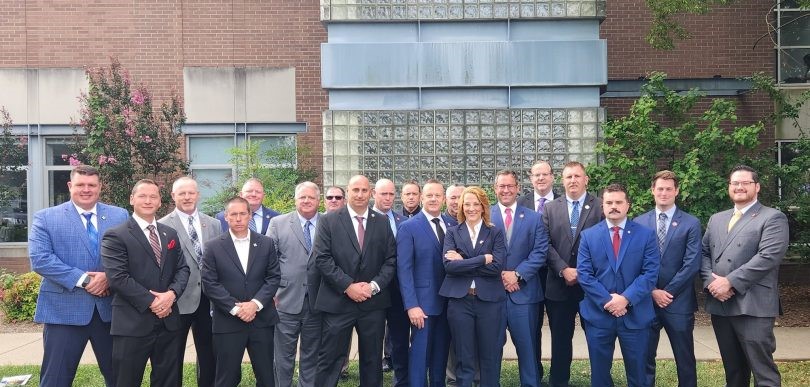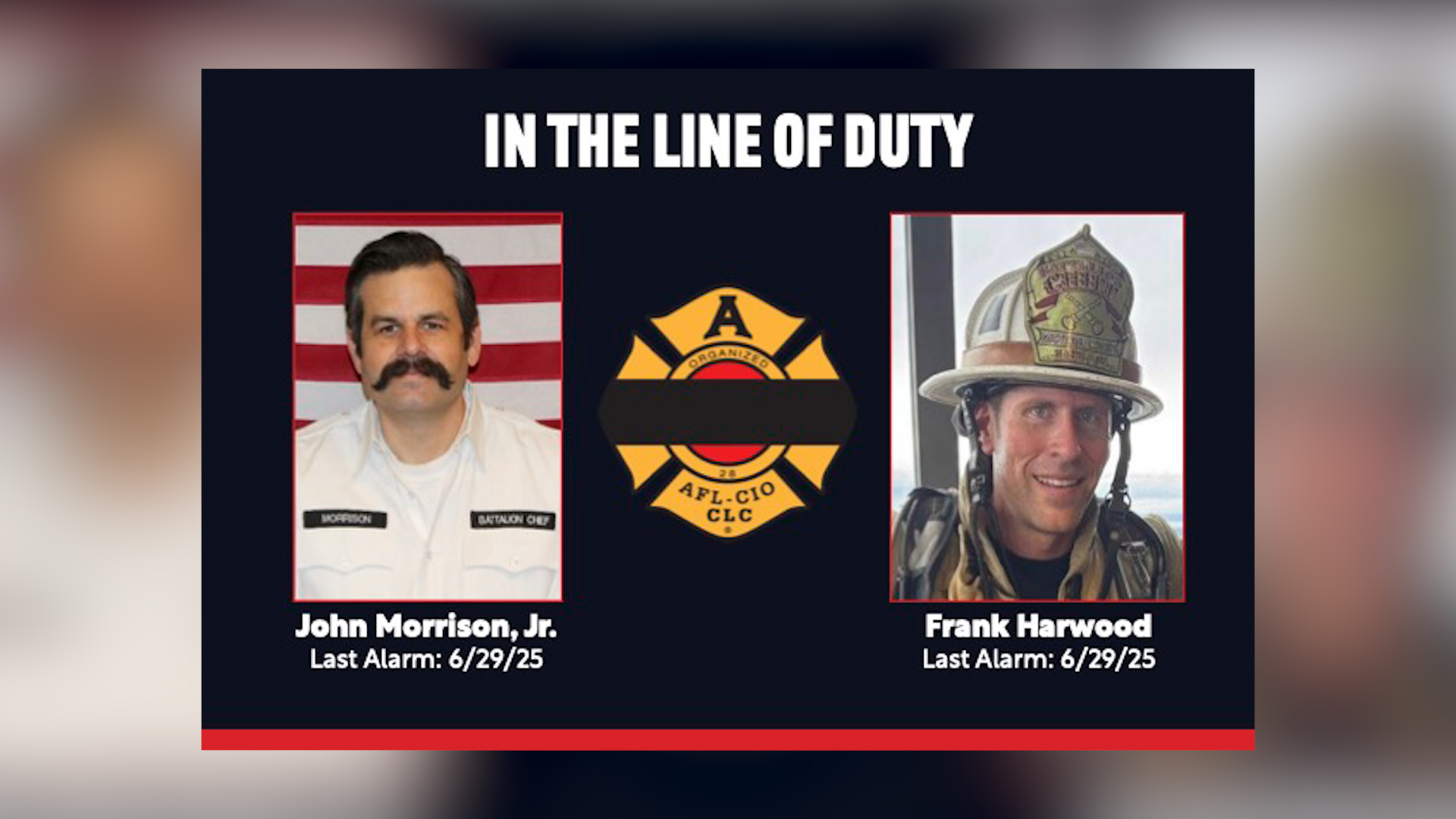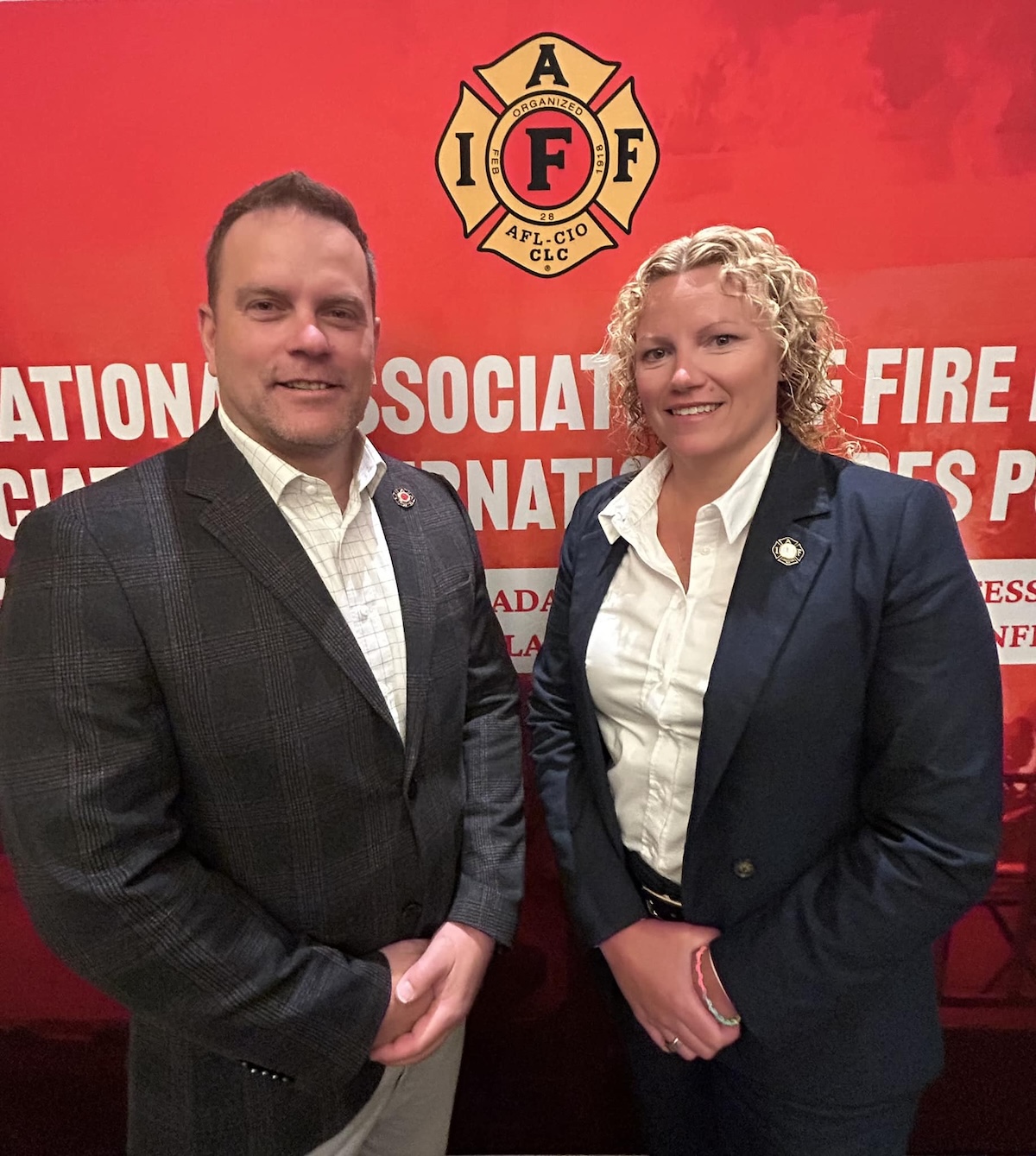
Morgantown, WV Local 313 fire fighters are in line to receive holiday backpay dating to 2014 after the State Supreme Court ruled in their favor. The case has been remanded back to Monongalia Circuit Court where the judge will oversee a process that determines how much the city owes 54 current and former fire fighters in damages and award accordingly.
“We are pleased with the high court’s ruling and are confident that the circuit court will give a fair and just award,” said Local 313 President Charles Campbell. “While we do have one outstanding issue, this is a great win for our members. We appreciate the support of the IAFF and our attorney, Teresa Toriseva, in this matter.”
Morgantown fire fighters were not being fully compensated for holiday hours in a dispute with the city that dates to at least 1985. Specifically, the city was utilizing a blanket 12-hour holiday pay structure instead of the 24-hour structure outlined in the state’s Wage Payment and Collection Act (WPCA) to calculate pay or time off for holidays.
Fire fighters have long argued that holiday pay should cover the full 24 hours of shifts that call in part on holidays. The other key part of their suit was their contention that holiday pay constituted wages and would be covered under the state’s Wage Payment and Collection Act (WPCA).
Winning this argument was crucial on two fronts: Opening the back pay window to fire fighters who are no longer active and extending the window for back pay to 2014, a full five years before the suit was filed, three more than the Circuit Court had allowed.
After attempting to resolve the issue directly with the city administration, Local 313 filed a lawsuit in Monongalia Circuit Court. However, the now-retired circuit court judge ruled mostly in favor of the city, saying that holiday pay did not fall under the WPCA because the compensation was fringe benefits and not wages.
“We knew we were not misinterpreting the provisions of the WPCA, so we continued to push and appealed the case,” said former Local 313 President Jayson Nicewarner, who is the current Professional Fire Fighters of West Virginia (PFFWV) secretary-treasurer. “And our resolve paid off when the case went to the State Supreme Court.”
In its decision, the State Supreme Court broadly sided with the fire fighters.
Notably, the Court ruled holiday pay qualifies as wages and falls under the WPCA. However, the Court decided wages should be awarded based on the exact number of hours worked on holidays. Morgantown fire fighters work 24-hour shifts, beginning at 8 a.m. So, even though the first 16 hours of a shift might fall on one of the state’s 13 holidays, fire fighters had sought 24 hours of holiday pay. Theirs was a shift argument, but the Court decided to follow the calendar. So, in the example above where shifts begin at 8 a.m., Morgantown fire fighters will receive 16 hours – a third more than the city has been paying for decades.
In a partial dissent, State Supreme Court Justice William Wooton disagreed with the majority’s finding that the holiday pay statute “should be meanly parsed in a way that denies the firefighters the benefit of twenty-four hours of compensatory time for all holidays worked a benefit I believe the Legislature intended to bestow.”
Overall, Morgantown Local 313 is happy with the ruling.
“[Toriseva] did an impeccable job representing the interests of Morgantown Local 313 members which led to this favorable ruling,” said IAFF General Counsel Peter Leff. “We are pleased that the State Supreme Court reversed the circuit court judge’s ruling on the application of the WPCA. While it is disappointing that the court did not agree on the 24-hour shift issue, there are still some avenues our Local 313 members can take to find resolution.”
The PFFWV maintains the law means fire fighters should be compensated in their holiday pay for their full 24-hour shift and plans to lobby state legislators to amend the language in the law to clear up any ambiguity.
“We believe that legislative intent is clear,” Nicewarner said. “Now we need them to make it crystal clear that firefighters are to be compensated 24 hours for each holiday. No one can speak to legislative intent better than the Legislature itself.”



